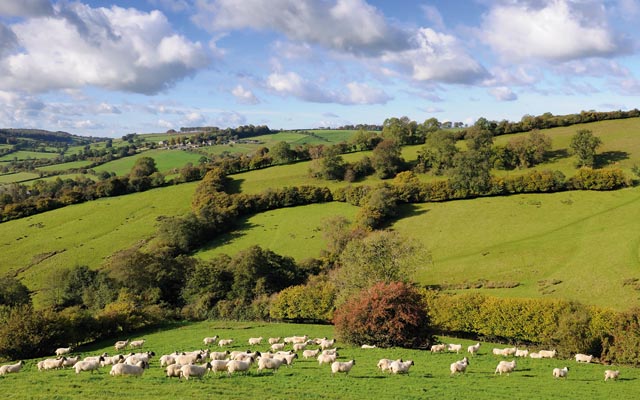Politicians bid for farming vote
Landscape of many colours: which party will best serve the interests of farmers?


Last week’s annual Oxford Farming Conference, which gives politicians a chance to address farmers, scientists and agricultural businessmen, provided an opportunity for MPs of different hues to woo the farming industry four months ahead of the election.
Defra Secretary Liz Truss would not be drawn on further rollout of the badger cull, despite the disease being prevalent way beyond the two pilot areas, notably in Cheshire. ‘I’m prepared to do whatever it takes [to eradicate bovine TB],’ she said, without elaborating. She told delegates: ‘It is not easy, but we will do the right thing even if the protest groups don’t like it.’
In the second of four pilot badger culls, shooters in west Somerset exceeded their target of animals culled and there is anecdotal evidence that the disease may be receding, but those in Gloucestershire fell short. Miss Truss says the area ‘reflects the challenges of extensive unlawful protest and intimidation’. Her opposition number, Welsh MP Huw Irranca-Davies—who opposes the cull, despite Wales being blighted by bovine TB said that, if Labour is elected, the cull will be halted.
Politicians shared their views on genetically modified (GM) crops on the eve of the European Parliament vote on whether member states should be allowed to make individual decisions about growing them currently, trials can be blocked by a single state. Miss Truss comments: ‘I think GM technology has a role to play in the UK. It could mean that crops can be produced with less water and fewer pesticides and I think our farmers need those opportunities.’
UKIP MEP Stuart Agnew, a Norfolk farmer who knows about the pressure on those running GM trials, was the most gung-ho and revealed that his party wants a free vote on the issue. Mr Irranca-Davies agreed that GM crops ‘could provide some of the solutions’, but argues: ‘We cannot have a situation where it’s GM or nothing there should still be a role for international governance.’ Scotland’s Environment Secretary Richard Lochhead remained cautious. ‘The jury is out,’ he commented, expressing fears for his country’s ‘Green credentials’.
Mr Lochhead revealed nervousness about the Tories’ proposed referendum on Europe because of Scottish farmers’ heavy reliance on Common Agricultural Policy (CAP) payments. ‘Opting out of farm support means opting out of farming,’ he says, describing the referendum as a ‘£20 billion gamble’ and ‘the biggest threat to British farming’.
Research produced for the conference by The Andersons Centre concludes that Britain is lagging behind many other countries in terms of agricultural efficiency, even though our farming practices are often kinder. And, despite environmental campaigner George Monbiot’s coruscating attack on ‘exceedingly rich farmers’ receiving ‘millions’ from agri-environment schemes and on the ‘sheep-wrecked’ hills of Wales, James Bullock from the Centre for Ecology and Hydrology concluded his presentation by saying that, in fact, if diligently applied, the schemes can increase both productivity and public good.
Exquisite houses, the beauty of Nature, and how to get the most from your life, straight to your inbox.
Prof Bullock concludes: ‘Most of our biodiversity blue butterflies on chalk grassland, hen harriers on the uplands is a result of traditional agriculture and sustainable grazing levels. There is no one size that fits all we even once came out against rewilding as an experiment in terms of biodiversity. Multiple solutions are the ways ahead. No one’s right and no one’s wrong.’
Kate is the author of 10 books and has worked as an equestrian reporter at four Olympic Games. She has returned to the area of her birth, west Somerset, to be near her favourite place, Exmoor. She lives with her Jack Russell terrier Checkers.
